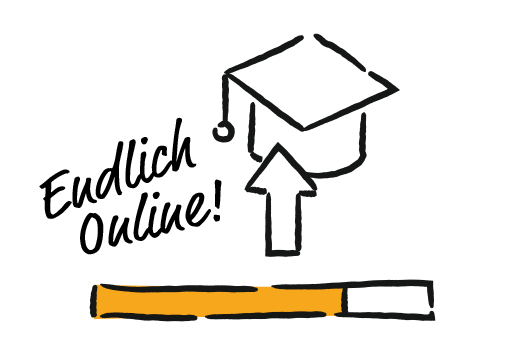Back to overview
Andreas Heindl, Head of ORF Training
#98 What skills are needed?
What actually changes when we talk about digitization? ORF's editorial offices have been working with computers for about 25 years. At that time, they began to replace typewriters with computers and, in the radio sector, tape recorders with DIGAS.
The motto of the German Multimedia Congress in 1995 was "Ascent to the Information Highway". The Internet already existed. One dialed in via modem. There was expensive ISDN line. However, image transmission via the Internet was

still very slow and jerky, and for home use it was still a thing of the future. Computer games and learning programs were distributed via CDs. DVDs were just emerging. The Internet was used for fast text transmission. The highlight of the congress was to establish an Internet connection via modem to a research facility at the North Pole. Multimedia took place offline. But it was known that at some point it would also be possible online. What we now understand by multimedia was already envisioned at that time. The anticipation of some masterminds obviously worked. However, we listeners could not really imagine it yet. At the time, ORF began to build up its online editorial department. The online offering quickly established itself as ORF's third medium alongside radio and television. The rapid development in data transmission and in the processing power of computers brought these three different media increasingly closer and finally together in the ORF player.
Whereas in the first wave of digitization, editors first had to learn to operate a computer, to find their way around a data structure, they are now faced with the

challenge of finding their way around the new platforms, the possibilities for interaction with users, the non-linear forms of narration, the constantly evolving workflows and, on top of that, to organize themselves in their own work technology and in virtual collaboration with others. These are enormous challenges for individual employees, as well as for managers and for the organization. It is a change that goes right to the roots. It requires a high level of expertise and willingness to change. Whereby the expertise quickly becomes obsolete and must be constantly updated, and the willingness to change must never become so great that one loses orientation and identity. And this is exactly where our training program comes in.
Since 1995 - as long as I have been active in the training sector in various capacities - the editorial business has been in a permanent process of digital transformation. Change is accelerating, innovation cycles are becoming shorter. And even though colleagues already have enormous know-how and many years of experience in dealing with change, the next few years will require special attention to ensure that this change process succeeds. The technical training, the training for those responsible for the project and the management teams, as well as the support measures in the change process will be continuously adapted and updated as the process progresses. Just as many people can no longer imagine working with typewriters now, in a few years we will be surprised about other devices that people have become so attached using. I'm already curious to see what it will be.



 still very slow and jerky, and for home use it was still a thing of the future. Computer games and learning programs were distributed via CDs. DVDs were just emerging. The Internet was used for fast text transmission. The highlight of the congress was to establish an Internet connection via modem to a research facility at the North Pole. Multimedia took place offline. But it was known that at some point it would also be possible online. What we now understand by multimedia was already envisioned at that time. The anticipation of some masterminds obviously worked. However, we listeners could not really imagine it yet. At the time, ORF began to build up its online editorial department. The online offering quickly established itself as ORF's third medium alongside radio and television. The rapid development in data transmission and in the processing power of computers brought these three different media increasingly closer and finally together in the ORF player.
still very slow and jerky, and for home use it was still a thing of the future. Computer games and learning programs were distributed via CDs. DVDs were just emerging. The Internet was used for fast text transmission. The highlight of the congress was to establish an Internet connection via modem to a research facility at the North Pole. Multimedia took place offline. But it was known that at some point it would also be possible online. What we now understand by multimedia was already envisioned at that time. The anticipation of some masterminds obviously worked. However, we listeners could not really imagine it yet. At the time, ORF began to build up its online editorial department. The online offering quickly established itself as ORF's third medium alongside radio and television. The rapid development in data transmission and in the processing power of computers brought these three different media increasingly closer and finally together in the ORF player. challenge of finding their way around the new platforms, the possibilities for interaction with users, the non-linear forms of narration, the constantly evolving workflows and, on top of that, to organize themselves in their own work technology and in virtual collaboration with others. These are enormous challenges for individual employees, as well as for managers and for the organization. It is a change that goes right to the roots. It requires a high level of expertise and willingness to change. Whereby the expertise quickly becomes obsolete and must be constantly updated, and the willingness to change must never become so great that one loses orientation and identity. And this is exactly where our training program comes in.
challenge of finding their way around the new platforms, the possibilities for interaction with users, the non-linear forms of narration, the constantly evolving workflows and, on top of that, to organize themselves in their own work technology and in virtual collaboration with others. These are enormous challenges for individual employees, as well as for managers and for the organization. It is a change that goes right to the roots. It requires a high level of expertise and willingness to change. Whereby the expertise quickly becomes obsolete and must be constantly updated, and the willingness to change must never become so great that one loses orientation and identity. And this is exactly where our training program comes in.